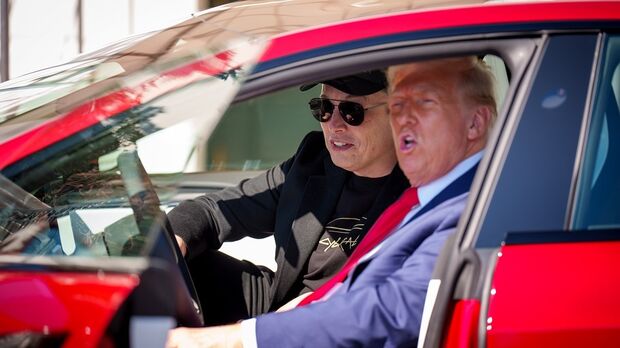Elon Musk’s political entanglements through his leadership of the Department of Government Efficiency—ironically acronymised as DOGE—have raised fresh questions about the stability of Tesla’s brand and long-term value. Once revered as a visionary entrepreneur steering the world toward a cleaner transport future, Musk now finds himself at the centre of a reputational whirlwind that experts say has undercut the trust and appeal of the Tesla name.
Musk’s foray into U.S. government policy, particularly in the context of Donald Trump’s second presidential term, has drawn fierce criticism from both the corporate world and public commentators. His perceived politicisation of the Tesla brand, compounded by inflammatory remarks on social media and visible alignment with hard-right figures, has triggered a noticeable cooling among key consumer demographics. According to recent brand perception indexes, Tesla has plummeted from being a top-ten brand in 2021 to outside the top ninety today.
That slide in reputation has coincided with weakening sales in critical global markets. In Europe, once Tesla’s fastest-growing region, the company has seen a marked decline in registrations, with Germany, France, and the Nordics all reporting double-digit year-on-year drops. Analysts attribute much of this downturn to consumer backlash, particularly among environmentally conscious and liberal-leaning buyers who formed the backbone of Tesla’s early customer base.
The financial consequences have been sharp. Tesla posted a 71% fall in profits in the latest quarterly results, prompting investor unrest and speculation about Musk’s divided priorities. The decline also triggered internal debates about messaging, brand integrity, and whether Tesla should distance itself from Musk’s political persona.
“It’s rare to see a brand go from cult-like admiration to active avoidance this quickly,” said one market strategist. “What we’re witnessing is not a tech backlash—it’s a trust collapse.”
In response, Musk appears to be recalibrating. In a recent post on X, he acknowledged the need to refocus on the core businesses—Tesla, SpaceX, and the social media platform itself. He has reportedly scaled back his political engagements, including limiting campaign-related appearances and suspending certain government-facing initiatives associated with DOGE. The announcement was swiftly followed by a modest recovery in Tesla’s share price, a sign that investors may still believe in the fundamentals of the company if its founder reins in the distractions.
Even so, the reputational damage is not easily undone. Tesla now faces a credibility gap—not only with consumers, but also with the broader tech and investment communities who once saw it as a beacon of innovation. Some fund managers have reduced their exposure to Tesla stock, citing concerns over governance and long-term strategic focus.
For all the turbulence, the next few months may prove decisive. If Musk can remain disciplined and return attention to Tesla’s roadmap—particularly the delayed Cybertruck roll-out and next-generation battery platform—he may yet recover investor confidence. But the lesson from this episode is clear: even for a brand built on disruption, straying too far from its mission carries real and lasting consequences.



Recent Comments